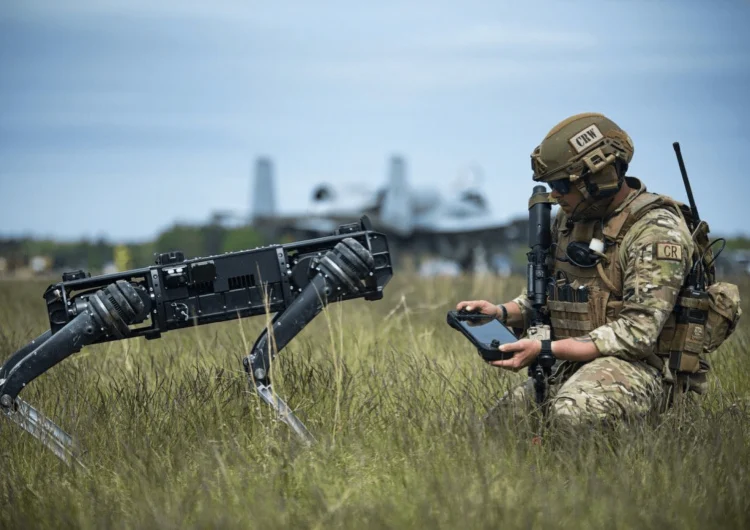Military technology encompasses a broad spectrum of innovations designed to enhance the capabilities of armed forces and ensure national security. As geopolitical landscapes shift and conflicts evolve, the need for advanced military technology becomes increasingly critical. This article explores the latest developments in military technology, the impact of innovation on warfare, and the ethical considerations that arise from these advancements.
Historical Context
The evolution of military technology has significantly influenced the outcome of wars throughout history. From the invention of gunpowder to the development of nuclear weapons, technological advancements have often shifted the balance of power. The Industrial Revolution introduced machinery that transformed traditional warfare, while the 20th century saw the rise of radar, missiles, and jets. Today, we find ourselves in an era characterized by rapid technological advancements that continue to redefine the nature of conflict.
Key Developments in Military Technology
- Unmanned Aerial Vehicles (UAVs): Drones have revolutionized modern warfare, providing unprecedented surveillance and strike capabilities. UAVs allow for remote reconnaissance and targeted strikes with reduced risk to personnel. They have been instrumental in counter-terrorism operations and surveillance missions, providing real-time intelligence without the need for manned aircraft.
- Cyber Warfare: As society becomes increasingly dependent on technology, the battlefield has expanded into the digital realm. Cyber warfare involves hacking, disrupting, or damaging an adversary’s information systems and infrastructure. Nations invest heavily in cyber capabilities to protect their assets and disrupt the operations of their enemies.
- Advanced Robotics: Robotics plays a crucial role in modern military operations, from bomb disposal units to autonomous ground vehicles. These technologies can perform high-risk tasks, reducing the danger to human soldiers and enhancing operational capabilities. Developments in robotics also include exoskeletons that enhance soldier performance and endurance.
- Hypersonic Weapons: These weapons travel at speeds greater than Mach 5, making them difficult to detect and intercept. Hypersonic missiles and glide vehicles have the potential to reshape military strategies, as they can strike targets swiftly and with precision, complicating defense planning for adversaries.
The Impact of Military Technology on Warfare
The integration of advanced technologies into military operations has profound implications for how wars are fought and won. Some of the most notable impacts include:
- Increased Precision: Modern weapons systems are designed for accuracy, minimizing collateral damage and civilian casualties. Precision-guided munitions allow for targeted strikes that can achieve military objectives without extensive destruction.
- Enhanced Intelligence and Surveillance: The ability to gather and analyze data in real time has transformed battlefield awareness. Technologies such as satellite imaging, drones, and advanced reconnaissance systems provide commanders with actionable intelligence that informs decision-making.
- Speed of Warfare: The rapid development of technology has led to a faster pace of conflict. Decisions must be made quickly, and military operations can escalate more rapidly than ever before. This creates challenges for strategic planning and response.
- Asymmetric Warfare: Advanced technology often creates disparities in military capabilities, leading to asymmetric warfare scenarios. Smaller, less technologically advanced forces can leverage guerrilla tactics and cyber capabilities to counter larger, conventional military forces.
Ethical Considerations
While the advancements in military technology offer numerous benefits, they also raise significant ethical questions. Key concerns include:
- Autonomous Weapons: The development of autonomous weapons systems that can make kill decisions without human intervention poses ethical dilemmas regarding accountability and the potential for unintended consequences. Questions about who is responsible for the actions of such systems must be addressed.
- Cyber Warfare Ethics: The implications of cyber warfare are complex, as attacks can disrupt essential services and impact civilian life. Establishing norms and rules of engagement in cyberspace is critical to prevent escalation and protect innocent civilians.
- Human Rights: The deployment of advanced military technology in conflict zones can lead to human rights violations. Ensuring compliance with international law and protecting civilian populations during military operations are paramount.

Conclusion
Military technology continues to evolve at a rapid pace, shaping the future of defense and warfare. As nations invest in advanced technologies, the importance of ethical considerations, international norms, and accountability becomes more pronounced. The challenge lies in balancing the benefits of military innovation with the need to protect human rights and ensure global security.


